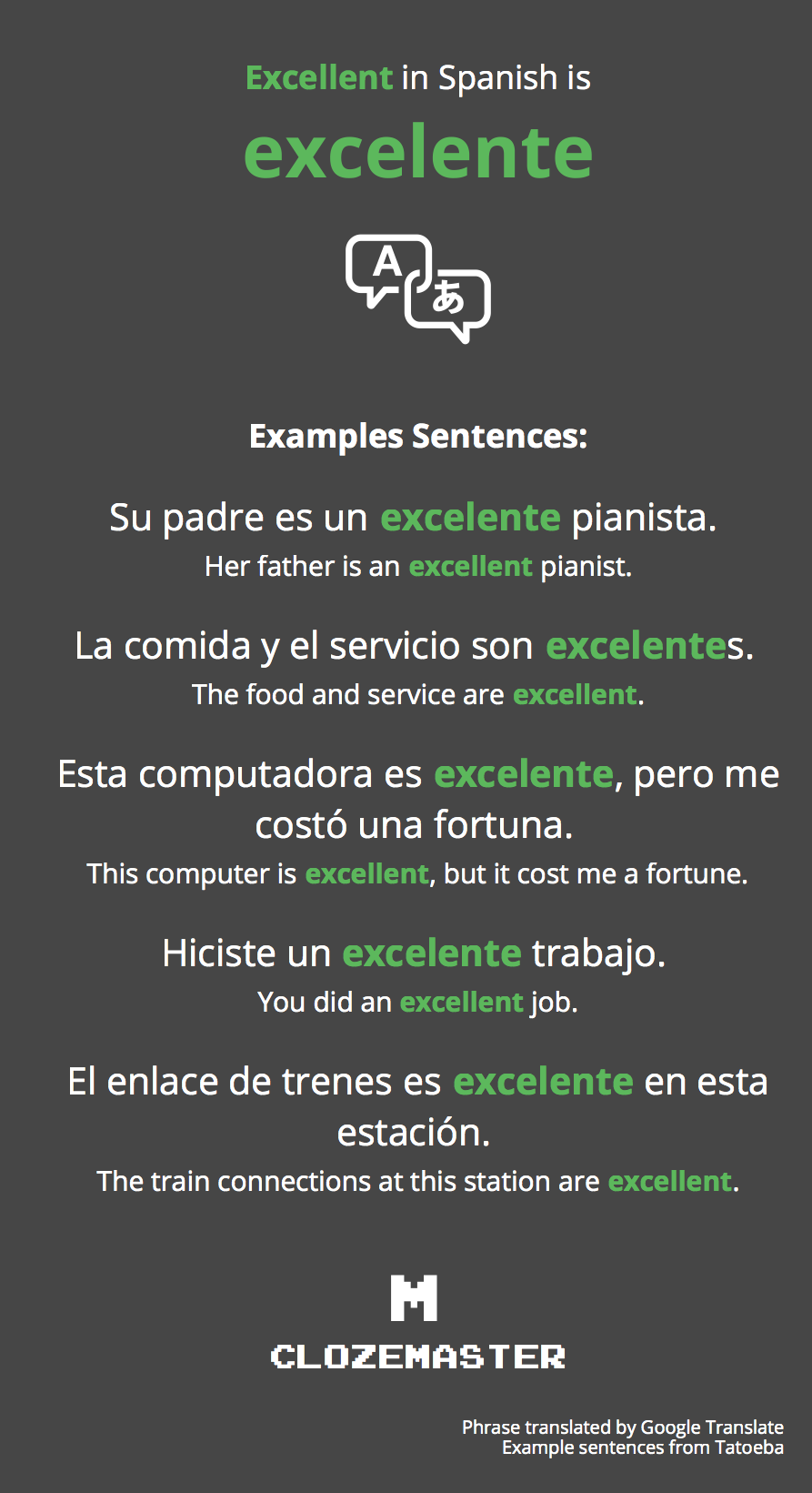How to Say Excellent in Spanish?
Do you want to be able to communicate with Spanish-speaking individuals while traveling or in everyday life? Knowing how to say “excellent” in Spanish is a great way to show your appreciation and understanding of their language. Learning how to express yourself in Spanish is not only a great way to get around, but it also shows that you are respectful of their culture. In this article, we will provide you with the necessary information to learn how to say “excellent” in Spanish. With some tips and tricks, you can easily incorporate this phrase into your conversations. So keep reading to find out how to say “excellent” in Spanish!

Frequently Asked Questions
1. How do you say ‘excellent’ in Spanish?
The translation for “excellent” in Spanish is “excelente.” This word is an adjective, so it can be used to describe a noun or a person, as in “una excelente comida” or “él es excelente.” It can also be used to express approval or agreement, as in “excelente idea.”
2. What is the pronunciation for ‘excelente’?
The pronunciation for “excelente” is ehk-seh-lehn-teh. The accent is on the second syllable, so it should be pronounced with a bit of emphasis.
3. How is ‘excelente’ used in a sentence?
“Excelente” can be used in a variety of ways. For example, it can be used to describe something or someone, as in “ella es excelente en la clase” or “esta comida es excelente.” It can also be used to show agreement or approval, as in “excelente, voy a hacerlo” or “excelente, vamos a trabajar juntos.”
4. Is ‘excelente’ gender-specific?
No, “excelente” is not gender-specific. The word does not change depending on the gender of the person or thing being described. The same word is used for both masculine and feminine nouns.
5. Are there any other ways to say ‘excellent’ in Spanish?
Yes, there are other ways to say “excellent” in Spanish. Some other words that can be used include “fantástico,” “genial,” “maravilloso,” and “sobresaliente.” These words all have slightly different meanings and connotations, so it is important to choose the one that best fits the context.
6. Are there any regional variations of ‘excelente’?
Yes, there are regional variations of “excelente” in Spanish. In some countries, such as Mexico and Colombia, it is common to use the word “chévere” to express the same meaning. In other regions, such as Argentina and Chile, the word “padre” is used to mean “excellent.”
Learning how to say excellent in Spanish is a great way to enrich your Spanish language skills. Not only can you impress your friends and family with your mastery of the language, but you will also have the ability to communicate better with Spanish-speaking colleagues, friends, and family members. Whether you are traveling to a Spanish-speaking country or just trying to learn a few new words, saying excellent in Spanish is sure to come in handy. With practice and dedication, you will have the confidence to say excellent in Spanish with ease.




